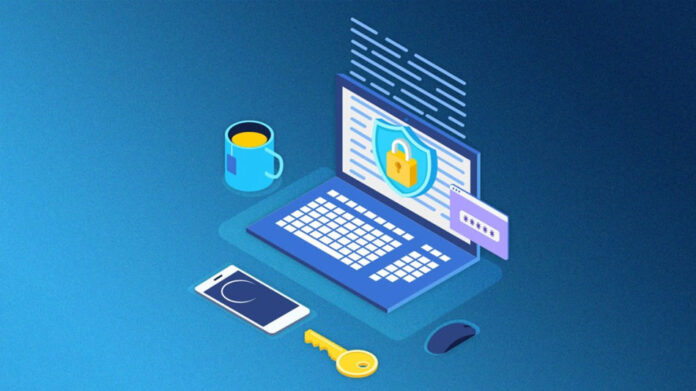Table of Contents
An antivirus is the first
You should definitely have a security suite, which is an anti-viral software that fights many threats aside from viruses (trojans, worms, spyware, spam, etc.). If you wish for a security upgrade, consider buying the premium version. The difference might be in comfort, extra modules, additional configurability, or one protection for several devices – it all depends on a specific product. The features worth the pay are, for example, a firewall, online tracking protection, spam detection, and parental control.
Disk encryption prevents unauthorized access
What’s worse than a stolen laptop? A stolen laptop with valuable data on it. For many years, it had been very easy to access the hard disk with a bootable USB stick or after removing the drive. Then, disk encryption was introduced. You might be familiar with BitLocker or FileVault, which are the prevalent solutions on Windows and macOS. Luckily, the ciphering mechanisms are so widespread now that many are built-in and free to use. But on many devices (and operating systems) you need to enable them first. Remember that they only prevent unauthorized access without the password. Any hacker knows that, that’s why password security is crucial.
VPN for additional online safety
A VPN works in the online world, serving both your security and privacy. Commercial VPNs are subscription-based services. They allow connecting to the Web through an intermediary, a remote VPN server. The link to it is impenetrable from the outside. That safeguards you from a number of prying eyes: hackers in local networks, your ISP, or the government. VPN services require maintaining hundreds of servers, which is quite a costly business. That’s why you should beware of the ‘100% free’ ones, as they might be insecure and slow. One of the better free solutions is TuxlerVPN. It has a paid premium version and a specific optional configuration (residential VPN), which makes it cheaper.
Don’t trust yourself too much
It seems logical that to increase your safety, you need to learn cybersecurity and invest in it. Wrong! Following some habits will make you safer than most people. The general advice is to be reasonably distrustful of yourself. Ever destroyed or lost a phone accidentally? Or forgot a password, blocking yourself from the bank? We’ve all been there. Good preventive habits will save you a lot of trouble:
- Use a password manager to relieve your memory.
- Don’t write passwords down on paper or in plain text in a file.
- Keep the important data in the cloud, so that losing a device isn’t catastrophic.
- Clean your desk, to prevent spilling hot coffee on the laptop.
- Never leave your devices where someone might grab them.
- Lock the screen when going away, even for a short moment.
- Don’t click suspicious links, like on unknown websites claiming you’ve been hacked.
- Don’t open email attachments if you aren’t sure what they are.
As you see, computer security doesn’t have to be expensive. Free or cheap solutions don’t mean less reliability, especially if you understand precisely how they work and what to look for in a piece of protection software. Choose the best protection for yourself and learn good habits!















